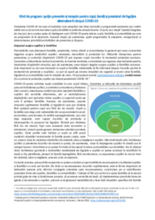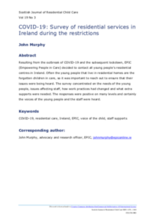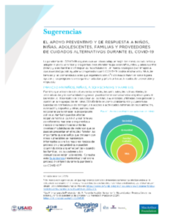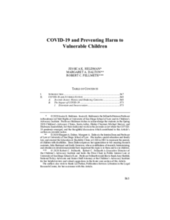This section includes resources and tools related to alternative care during the COVID-19 pandemic.
Displaying 171 - 180 of 185
This resource from Changing the Way We Care offers guidance on adapting and/or developing services and programming to continue to best serve children and families throughout the rapidly changing times of the COVID-19 pandemic, particularly on conducting virtual monitoring of children, families, alternative care placements and residential care facilities.
Această mapă, de asemenea, ajută programelor la adaptare, reorganizare și determinarea priorității activităților de prevenire și răspuns.
Resulting from the outbreak of COVID-19 and the subsequent lockdown, EPIC (Empowering People in Care) decided to contact all young people’s residential centres in Ireland. This article present the results of that survey.
Esta guía se desarrolló para ayudar al equipo psicosocial a realizar un seguimiento virtual de los NNA y las familias durante la pandemia de COVID-19.
Este documento de Changing the Way We Care utiliza un marco ecológico para mostrar como la pandemia del COVID-19 crisis podría afectar a los NNA, las familias y las comunidades y como ayudar a los programas a reorganizar, adaptar y priorizar las actividades de prevención y respuesta.
This article explores the current state of child rights within the U.S. child welfare, juvenile justice, and special education systems, highlighting concerns that pre-date COVID-19 as well as recent legal implications of the pandemic.
This report was developed with extensive input from LGBTQ+ young people currently or formerly in foster care, LGBTQ+ young people currently or formerly experiencing homelessness, and direct service workers. It identifies how the pandemic is amplifying some of the risks for LGBTQ+ youth in child welfare systems and propose practices to mitigate them.
CELCIS has gathered together important guidance, information and resources to help children and families in Scotland and the UK during the COVID-19 crisis.
Pandemia COVID-19 solicită adaptarea și / sau dezvoltarea de servicii și programe pentru a continua să servim cel mai bine copiii și familiile lor în timpul acestei perioade rapid schimbătoare.
This package of materials from Changing the Way We Care features guidance and tools for case management and virtual monitoring during the COVID-19 pandemic.







